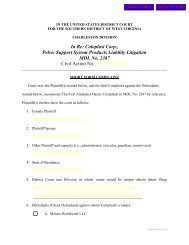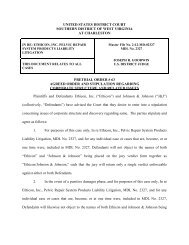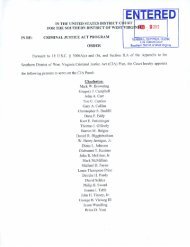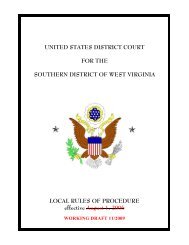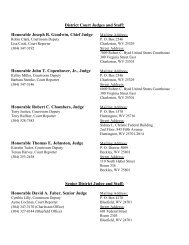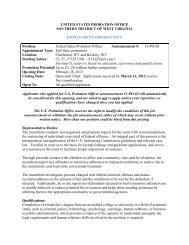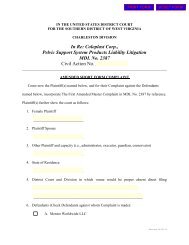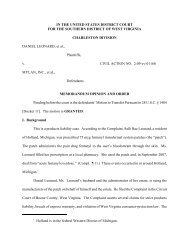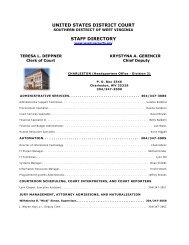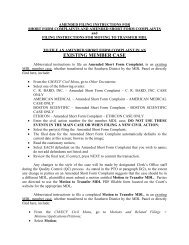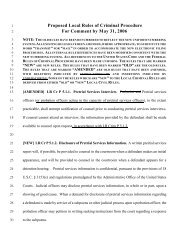R:\Storage\AE\Chapman, Ronald (C)\Order denying motion to ...
R:\Storage\AE\Chapman, Ronald (C)\Order denying motion to ...
R:\Storage\AE\Chapman, Ronald (C)\Order denying motion to ...
You also want an ePaper? Increase the reach of your titles
YUMPU automatically turns print PDFs into web optimized ePapers that Google loves.
B. Section 922(g)(8) Is Not Unconstitutionally VagueThe defendant next argues that the statute is unconstitutionally vague because it does notcontain definitions precise enough for him <strong>to</strong> determine whether or not his victim was an “intimatepartner” and, thus, whether he falls under its restriction from firearm ownership and possession. Thestatute, however, contains a definition of “intimate partner.” Pursuant <strong>to</strong> 18 U.S.C. 921(a)(32),“[t]he term intimate partner means, with respect <strong>to</strong> the person, the spouse of the person, a formerspouse of the person, an individual who is a parent of a child of the person, and an individual whocohabitates or has cohabitated with the person.” If the defendant had questions about his statusunder § 922(g)(8), he had the ability <strong>to</strong> consult the statute and its definition. Although the wordcohabitate, within the definition of “intimate partner,” is not itself defined, the word is sufficientlyprecise in ordinary and common meaning <strong>to</strong> reasonably put the defendant on notice that hispossession of a firearm or ammunition might bring prosecution. See Vernon Beigay, Inc. v. Traxler,790 F.2d 1088 (4th Cir. 1986) (“we recognize that unavoidable imprecision is not fatal and celestialprecision is not necessary . . . a fundamental canon of statu<strong>to</strong>ry construction is that, unless otherwisedefined, words will be interpreted taking their ordinary, contemporary, common meaning”) (internalcitations omitted). If he believes that he was not an “intimate partner” with the victim, as definedby the statute, he will have the opportunity <strong>to</strong> argue that factual defense before the jury.The defendant’s claim, that the statute is so vague as <strong>to</strong> be uncomprehensible, is also beliedby the facts of this case. The defendant had actual knowledge that he was not permitted <strong>to</strong> possessfirearms or ammunition. The DVPO warned him that <strong>to</strong> possess such items might be a violation ofboth state and federal law. He was the subject of a court order which sought <strong>to</strong> dispossess him ofhis firearms and ammunition. It further appears that he requested his father-in-law remove these-9-



